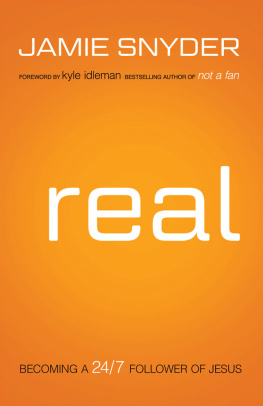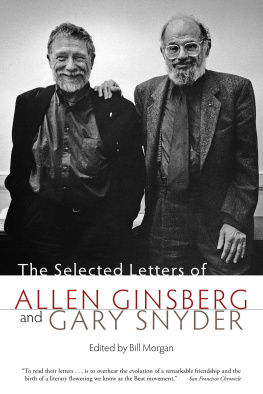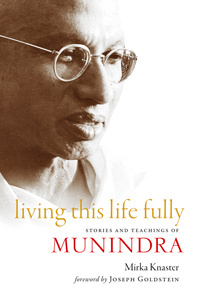SOLDIER OF CHANGE
SOLDIER OF CHANGE
From the Closet to the Forefront of the Gay Rights Movement
STEPHEN SNYDER-HILL
Foreword by GEORGE TAKEI

2014 by the Board of Regents
of the University of Nebraska
Foreword 2014 by George Takei
All rights reserved. Potomac
Books is an imprint of the
University of Nebraska Press.
Manufactured in the United
States of America.

All photographs are courtesy of the
author unless otherwise indicated.
Library of Congress
Cataloging-in-Publication Data
Snyder-Hill, Stephen.
Soldier of change: from the closet
to the forefront of the gay rights
movement / Stephen Snyder
Hill; foreword by George Takei.
pages cm
ISBN 978-1-61234-697-7
(cloth: alk. paper)
1. Gay military personnel
United States. 2. United States.
ArmyOfficersBiography.
3. Gay menUnited States
Biography. 4. Gay activistsUnited
StatesBiography. 5. Columbus
(Ohio)Biography. I. Title. II. Title:
From the closet to the forefront
of the gay rights movement.
UB418.G38S69 2014
355.0092dc23 [B]
2014004308
Set in Lyon Text by Renni Johnson.
Designed by N. Putens.
To the love of my life, Joshua. You are the fuel to my fire, and you bring out the best in me. I never think of me, I think of us. We are one and will always be. I love you with all of my life. I told you that if you waited for me when I went to war, you would be the one... you are the one.
Contents
Foreword
I first heard about Steve Hill (now Snyder-Hill, after he married his longtime partner, Joshua) the way most of the world didon the news. For a Republican presidential primary debate in September of 2011, a gay soldier serving in Iraq had submitted a videotaped question in which he both came out on national television and confronted a scenario that had been on many of our minds. Captain Hill explained that he had been required to lie about who he was when he joined the army, and then he poignantly asked the candidates this: As part of your presidency, do you intend to circumvent the progress that has been made for gay and lesbian soldiers in the military? In other words, would they, if elected, continue to permit gays and lesbians to serve openly and honorably, or would they return our military to the shame of the Dont Ask, Dont Tell policy that had been recently abolished by President Obama?
It was a fair question, posed by someone who risked his life every day in the service of his country. Like so many others, however, Captain Hills legal status was in limbo. Would he have to leave military service, having relied upon President Obamas abolition of the policy only to see it reinstated by a new commander-in-chief? Or if he stayed, would he face renewed ridicule, prejudice, and job discrimination?
For merely asking this question, Captain Hill was met by scattered boos from the crowd, boos that grew into a chorus. It was appalling and outrageous. Apparently, the mere acknowledgment by a soldier that he was gay was enough to rile the crowd. Far-right conservatives dont appreciate much of anything that disrupts their own worldview, and strapping young soldiers who up-end gay stereotypes tend to do that. (Jon Stewart, remarking on Captain Hill, observed that if he turned into the Hulk, his arms would stay the same size. They would just turn green.)
Or was the booing because Captain Hill actually had posed a legitimate questionone that put conservatives squarely on the spot? Gay equality is no doubt a wedge issue, one that used to be trotted out to galvanize conservatives and win elections for the right. But with public perception changing, the issue is now one increasingly posed by the left to call out bigotry and hypocrisythe very kind conservatives demonstrate when they rail over keeping the government out of their gun closets while inviting it straight into our bedrooms.
Conservatives also dont like these types of questions because they know they are on the losing side in the Culture Wars and, by extension, history. Recent polls show that as many as 70 percent of young people support marriage equality, and even higher percentages support job nondiscrimination for LGBTS. But still the far-right, apparently represented by the kind of folks who attend Republican primary debates, clings steadfastly to the past, hoping that by some miracle the gays will simply go away or, if they wont, will keep their mouths shut.
The audience reaction reflected both of these impulses. The boos underscored for me the urgent need for the military to stand firm and support its members, regardless of sexual orientation. Being gay, at least by most accounts, is an immutable, innate characteristic, as much a part of ones identity as skin color or ethnic origin. It has nothing to do with job performance, and it only can be said to disrupt unit cohesion in the armed forces where prejudice and animus is permitted to take root and spread. It is the job of the army command to ensure that unit cohesion is maintained at a high level, not at the lowest common denominator of intolerance.
When I watched the clip played and replayed on television, I was livid. I took to social media to speak out against what had occurred, tweeting to my fans my anger:
Audience at Rep. debate boos gay soldier Stephen Hill, now serving in Iraq, for saying I had to lie about who I was. #HaveTheyNoDecency?
I deliberately chose that hashtag because the witch hunts for gays in the military, which had only recently ended by presidential decree, reminded me of the terrifying days of McCarthyism, where the weight of the government was put behind ferreting out suspected communists. It was clear that our hard-fought victories for equality would have to be shored up, and that we would have to remain vigilant against an inevitable backlash by the right. Decency would have to prevail.
From my own base, the response was overwhelmingly positive toward Captain Hill and condemning not only of the audience members who booed him but of the candidates who stood by and said nothing. Indeed, the only thing more shameful than the disrespect shown to Captain Hill by the audience was the total indifference and silence of the Republican presidential candidates. Not one of them admonished the crowd for its behavior. Not one of them spoke out in defense of a bona fide hero. Even the more socially liberal Republican candidates standing on that stage remained disgracefully silent, too cowed by the zealots in their midst to say and do the right thing. Had they, as Id suggested, no decency by which to guide their consciences, or were they simply afraid that they would lose support among conservative votersthe ones who typically decide primary races?
True leadership is not just about knowing what the right thing is; it is doing the right thing even when you know it might be unpopular. It was this indifference that had me most disappointed. As Dr. Martin Luther King once so aptly said, In the end, we will remember not the words of our enemies but the silence of our friends.
No matter what the candidates personal views on homosexuality were, or whether they believed gays and lesbians should be allowed to serve openly in the military, there were two other values that went wholly ignored in that telling moment.
First, the president and commander-in-chief of the U.S. military, in consultation with his leading military advisors, already had lifted Dont Ask, Dont Tell. It was both executive and military official policy that gays and lesbians would no longer have to hide who they were. Captain Hill was doing just that, and he had every right under law to self-identify publicly as gay without repercussion to his career. The boos and the deafening silence that followed were a slap in the face to the rule of law.
Next page








